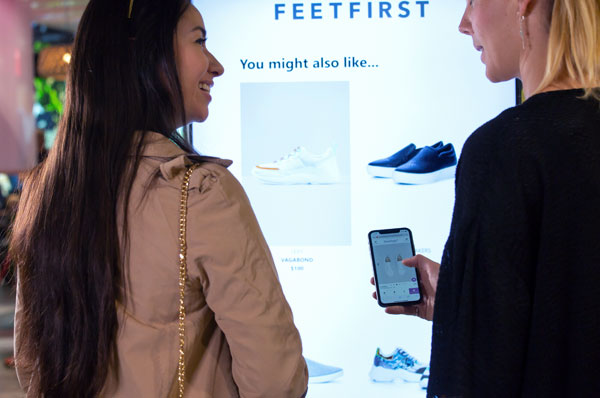Regrettably, many retailers of all shapes and sizes will close their doors permanently. And as we’ve seen, those who survive will probably do so by making good use of e-commerce.
But Covid-19 is doing far more than simply speeding up e-commerce innovation or forcing bankruptcies. Additionally, it’s shining a light on some retail trends that have been lurking in the shadows for some time.
Two trends in particular have stood out among them. Firstly, the importance of building and maintaining a community of fans; and secondly, the importance of brand ethics.
Retail communities: fans who will fight for your survival
The power of creating retail communities had already been proven before Covid-19.
Billion-dollar brands have been built solely around this concept in recent years. Peloton, who ultimately only sells exercise bikes, sells thee idea of community to its customers. Customers might think they’re buying a product, but really they’re buying a ticket to the world’s biggest and trendiest fitness club.
Meanwhile Glossier has raised its value beyond a billion dollars largely through its social media community. Seeing a Glossier pop-up or viewing its Instagram feed, it would be hard to argue that any traditional retailing is happening. This is a community of brand-obsessed fans, sharing and engaging. Buying make-up is almost a by-product.
Now, throughout the world, we’re likely to see brands that built communities coping better than brands that are simply transactional. Huge retailers with great e-commerce platforms and a big high street presence are suffering in part because the relationship they had with customers was fickle and functional. Did their customers really love them? Or were they just the easiest or cheapest to buy from?
Meanwhile, brands with communities can appeal to their fans for help. After all, fans will fight for your survival. Customers can simply find someone else.
Of course, this isn’t a black and white issue. Some large discount retailers will prosper in a post-Covid world in which customers have less disposable income. But retailers with real communities of fans will be better protected than anyone.
Ethical brands: coronavirus illustrates the value of doing the right thing
A phrase that’s been regularly used throughout this crisis is that ‘customers will remember the brands who did the right thing’. And that phrase alludes to a trend that’s been well-established for a while.
As buyers, we now care far more about the ethics of retailers. In some cases, we care so much that ethics will affect our buying decisions.
According to Sprout Social, 66% of customers want brands to take a stand on big issues. And various surveys point out the fact that consumers are increasingly willing to spend more with brands who are provably ethical.
Ethics are suddenly front and centre of the retail world – and not, as before, just in relation to environmental sustainability. Customers are now watching to see how retailers treat their staff, and what they do to show their support during the pandemic.
When retailers with enormously wealthy owners have furloughed or laid off staff, the response has been damning. And it’s hard to believe that customers will forget that – especially with so many other retailers going above and beyond.
Initially, we saw huge retailers like LVMH grab headlines by mass-producing hand sanitiser to help with global shortages. We’ve since also seen every kind of business offering discounts, freebies and rewards to frontline key workers.
Meanwhile, many businesses have used their strengths to help people during the pandemic. Uber has started offering on-demand retail delivery – a service that helps e-commerce traders to keep up with demand, and customers to get or send goods faster. CAMP, an iconic toy store in New York, has started running online birthday parties for free, every day. And Net-a-Porter, a luxury online retailer with its own fleet of vehicles, halted its trading and dedicated its business to delivering essential supplies to the vulnerable.
There have also been countless, well-publicised stories of brands who are doing everything they can to support and protect their staff. These efforts can be a financial risk – but, as has been apparent for years, customers care about how retailers treat their staff. As the world slowly comes back to life in the near future, it’s likely to be a risk that pays off.
A rare opportunity to focus on loyalty
Smart retailers are using the pandemic to build loyalty.
This is partly through positive covid-related actions and ethics. But it’s also ben by improving customer understanding – something that is pivotal for driving better customer experiences. And that’s especially important online.
All around the world, retailers of all shapes and sizes are seeing unprecedented online visits and sales. This has been a lifeline for many, but a huge opportunity is being missed if retailers aren’t able to use this data to improve customer understanding. Every digital journey leaves a visible, meaningful breadcrumb trail – and it’s a huge error if that information isn’t being utilised.
This learning will ultimately lead to improved loyalty – and it’s something we’ve helped retailers to develop for many years. We call it loyalty-driven commerce, and there really has never been a better or more important time to focus on it.










